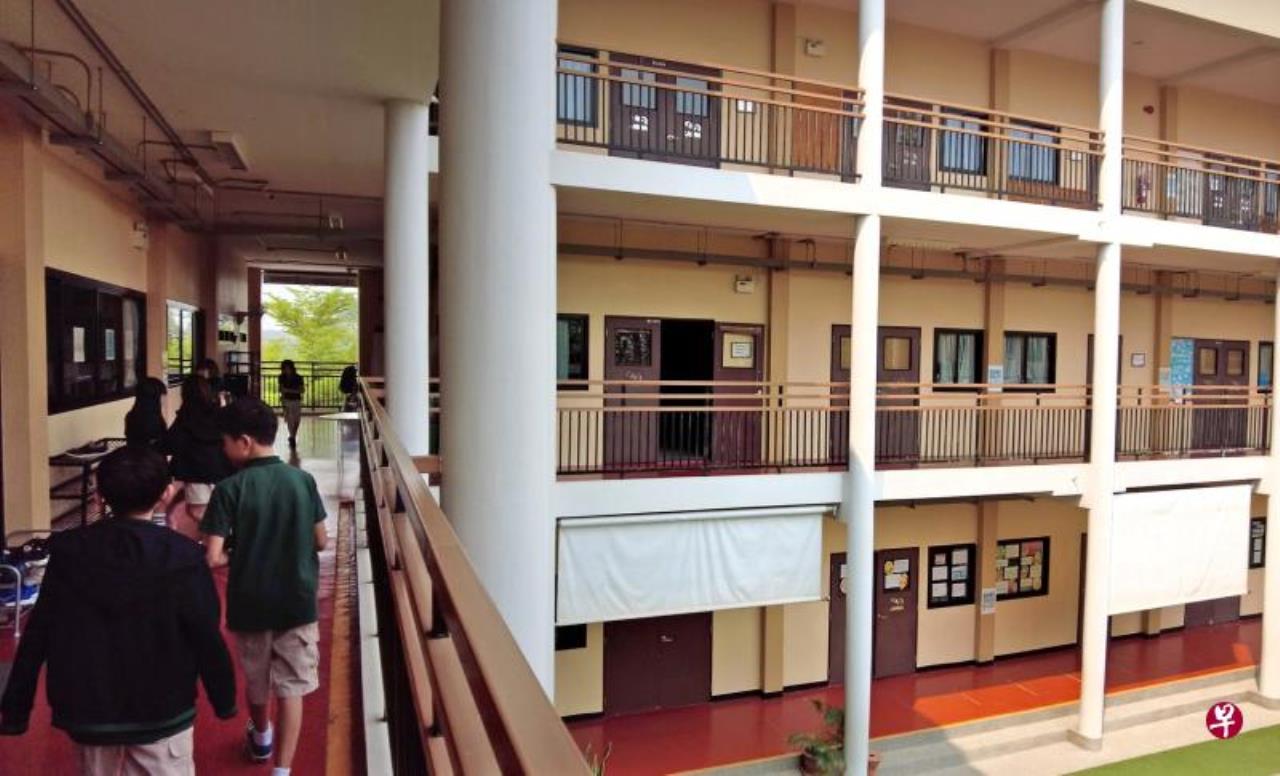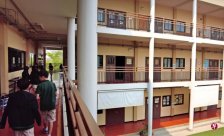
Special
Thailand is not only a popular tourist destination. The local international education industry has also developed vigorously in the help of Chinese students in recent years.In the international school in Chiang Mai, parents use Mandarin to communicate with each other, and there are many Chinese employees in the school's reception staff.
The Lanna International School, founded in 1993, was originally founded by an American. It is a popular British international school in Chiang Mai.According to intermediaries and people familiar with the matter, the school was acquired by a Chinese education group in 2018.
Log in to the consultation page of the school's official website, and the two -dimensional code of the two mainstream Chinese communication software WeChat came into view.Lianhe Zaobao reporters communicated with the agent far away in China in Chinese as a parent, and quickly made an appointment to visit the school.However, for the reporter's interview request sent by the official email, Lanna International School did not reply before the deadline.
On the day of the school, the Chinese parents were almost in the park.A Chinese student just walked out of the interview test room. Several Chinese parents immediately stepped forward and asked: "Is it difficult?"
The reception teacher from Hunan said that the school values academics, so it is very popular with Chinese parents.
The relatively low costs of the Thai international school and the close distance with China have attracted many Chinese middle -class families to apply for their children, bringing the local international education market.
Li Jiangyu, a lecturer at the School of Law and Sociology of Yunnan Normal University, and Aranda Siriphon, auxiliary professor of sociology and anthropology of Chiang Mai University, jointly published a research paper this year that in order to meet the needs of the Chinese market, Qing DynastyMai's international education industry is emerging.
The article quotes data that the number of Chinese students from Kindergarten from kindergarten to high school in Chiang Mai has increased year by year from 2017 to 2,000 from 1,400 to 2,000 in 2019.
The latest report released by a large -scale study abroad consulting company in Chiang Mai shows that since 2019, the company has provided consulting services for nearly 35,000 parents of Chinese parents and has accepted more than 1,900 applications for studying abroad.
The rapidly developing Thai international education market and China's huge potential source have attracted Chinese capital to directly enter the local education industry.It is understood that after the acquisition of Lanner International School, he began to expand a lot, and the hardware of the campus also quickly upgraded and expanded, and recruited troops to buy horses to expand the teacher team.
Local study abroad agencies said that in addition to Lanner, at least two international schools have different degrees of cooperation with Chinese -funded companies.
Yang Peidong, an assistant professor at the National Academy of Education, Nanyang University of Technology, Singapore, said in an interview with Lianhe Morning Post that China's education industry has been severely hit in China in recent years and has lost its growth soil.Looking for opportunities overseas to survive, logically the same as Chinese family outflow.
However, the high -level education field in Thailand has actually developed for many years, and not only the international education industry.
Under the "4.0 Economic Transformation Strategy" proposed by Thailand in 2016 in China and Thailand's "Belt and Road" initiative, a wide and long -term cooperation among China -Thailand colleges and universities has successfully entered the field and continued to expand.
Chinese capital invested at least three private universities and discussed more than 10 discussions with the acquisition
According to the news website Benarnews, at least three Chinese -funded private universities in the field of higher education in Thailand have been in the field of higher education in Thailand.Among them, the principal and dean of the University of Tyrinewa were renamed the University of Economics and Trade, and about 40%of the council members were Chinese.Faith Star, an Executive Director and shareholders of 51%of the school's shares, are almost Chinese.
In addition, 40 % of the directors of private Stanford International University are Chinese, one of which is from China.17%of the members of the Council of Gale University are Chinese.
The Fulcrum website of the Easov Issa East South Asian Research Institute in Singapore quotes that more than 10 private universities are currently discussing acquisitions with Chinese businessmen.
Chinese students bring considerable economic benefits to these private universities.According to the information of Lanna International School's official website, the tuition fee has doubled the tuition fees as a whole since it was acquired by Chinese capital in 2018.Taking the tuition fee of the primary school (7 to 10 years) as an example, from 242,250 baht (about S $ 9386) per academic year in 2019 to 474,000 baht per academic year.
Reuters in 2019 quoted Chada Triamvithaya, a scholar of Emperor University of Science and Technology in Thailand, said that the tuition fees collected from Chinese students from Chinese students were twice the tuition of local students.
However, Chinese capital has also caused concerns to enter the Thai education industry.
The winner of the Chiang Mai University President of Chiang Mai International Education for a long time, and the School of Social Sciences, the School of Social Sciences of the International Project, pointed out to Lianhe Zaobao that education itself has different logic and concepts.It may have an impact on teaching management and teaching quality, and may also bring some Chinese -style education methods.
She believes that capital entering the education market is a topic worth discussing. "Education is completely market -oriented, not a particularly wise choice."
From the course settings of these private universities, you can also see that the school offers courses to meet the needs of Chinese students, and the charges are higher.
Gale University website shows that nearly half of the nine bachelor's degree courses provided by the school are industrial and commercial administration popular with Chinese students, including human resources, business computers, data marketing, tourism and hotels, financial and accountingAnd international logistics and supply chain management.
These degree courses that can be taught in Chinese are four -year tuition fees for a total of 159,800 yuan (RMB, the same below, about S $ 3800), and the other only in English for the four -year tuition fee for the Bachelor of Bachelor of Industry and Commerce in English.It is 9,800 yuan.
The students of Chinese students aimed at this type of university, including the opportunities brought by the economic and trade and trade between China and Thailand, and hope that young people who can seek more employment opportunities in China and Thailand after graduation, also include losing failure in China in China.Students, the private education industry in Thailand provides them with an opportunity to study abroad.
In the publicity and introduction released by Chinese private universities in Thailand, which has invested in Chinese capital, you can often see slogans such as "Startups for the College Entrance Examination", which attracts the list of Chinese college entrance examinations, so that some college entrance examination scores are enough to go to three copies (mainly referring to civil -runningCollege) and even college students have the opportunity to obtain a bachelor's degree.


